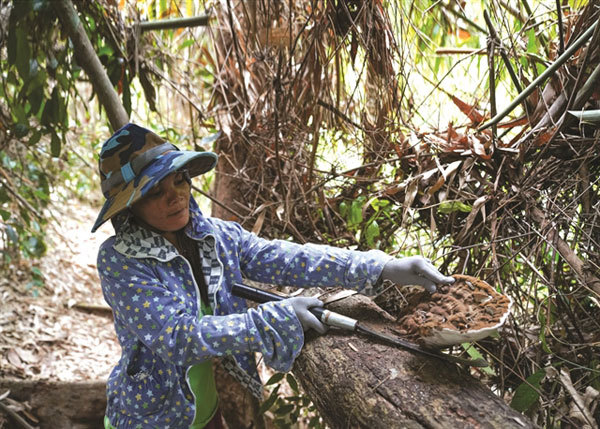 |
| A local farmer collects medicinal mushroom in jungle in the mountainous area of Quang Nam Province. Nearly 500 farmers in poverty in the province have joined sustainable mushroom farming. Photo courtesy of Linasa |
The tours were a chance to take photographs of wild flora and tiny beautiful insects, but over time he became concerned that the local lingzhi mushrooms (Ganoderma lucidum) were being overharvested, which could lead to their extinction.
With this in mind, in 2013 he launched Linasa, a joint stock company run by businesses and local farmers that would ensure the mushrooms were farmed sustainably and arrange for expert research into the valuable mushroom species.
Linasa was soon cooperating with Kyushu University in Japan to boost research and build a database on 11 mushroom species in the jungle as well as developing a research centre for saplings and gene conservation.
Linh said part of the problem was caused by large crowds of people flocking to the forest to seek out the mushroom species after researches showed the fungi might promote health and lower the risk of cancer and heart disease.
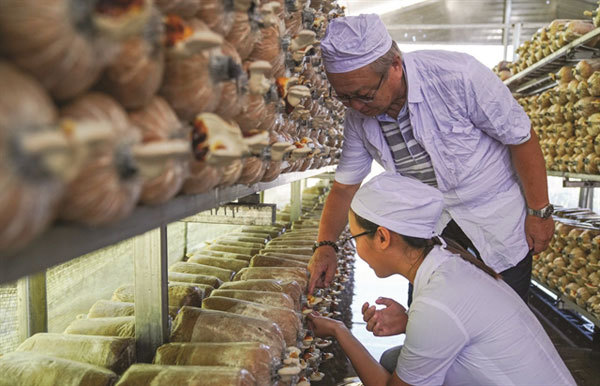 |
| Mushroom plots are grown at a research and development centre in Phu Ninh District of Quang Nam Province. Experts from the centre develop saplings and conserve genes of precious mushrooms from nature for sustainable farming in Quang Nam. Photo courtesy of Linh Nam |
He said the booming jungle trips were devastating large areas of natural forest as native people collected the mushroom at any cost to supply the increasing demand.
“The forest would soon have disappeared if people kept hunting for medicinal herbs in nature at that rate. It is for this reason I built up a sustainable collection of precious medicinal mushrooms for communities living near the forest,” said Linh.
“We collected the natural medicinal mushrooms from ethnic groups and local people to sell as a raw product in the market, but the research of the mushroom species and processing technology began from 2013.”
R&D
In partnership with Linasa, the first sustainable farming model for the mushroom was established in 2018 and was partially funded by the United States Agency for International Development (USAID) as part of its Green Annamites Project.
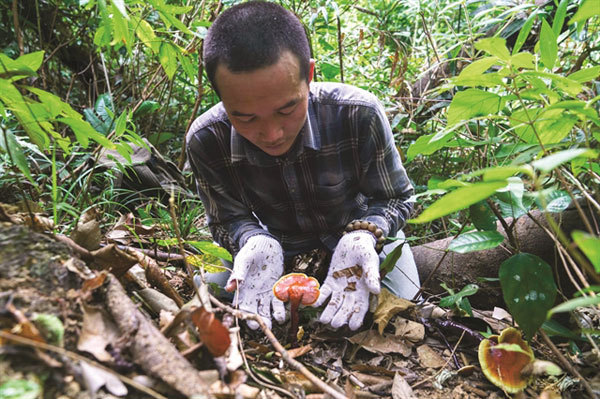 |
| Dao Duy Linh seeks a precious medicinal mushroom in primary forest in Quang Nam Province. At least 11 precious mushroom species have been found in the jungle for farming in the province. Photo courtesy of Linasa |
Communities from the districts of Dong Giang, Nam Giang, Tien Phuoc, Dai Loc, Nui Thanh, Phu Ninh and Tam Ky in the province joined the sustainable mushroom farming model, which provided nearly 500 farmers with technical assistance and knowledge in planting medicinal mushroom species on tree trunks, as well as the raw materials for processing.
Linh said the VND5.4 billion (US$237 million) mushroom farm project, of which VND2.24 billion was funded by USAID, helped create a sustainable value chain in providing communities with techniques and skills for growing and processing medicinal mushrooms into a profitable product.
“The USAID-funded project built three distribution channels for food, tea and extracts, all from home-grown lingzhi mushroom farms. We then added instant coffee into the value chain,” he said.
It is also the first medicinal mushroom production chain in the province to build profitable livelihood models and ease the over-exploitation of medicinal mushrooms for local residents in mountainous areas.
Vo Thi Vui, a farmer in Tien Phuoc District, said the sustainable mushroom farming model earned her family VND20 to 30 million per year, excluding income from logging and rice farming.
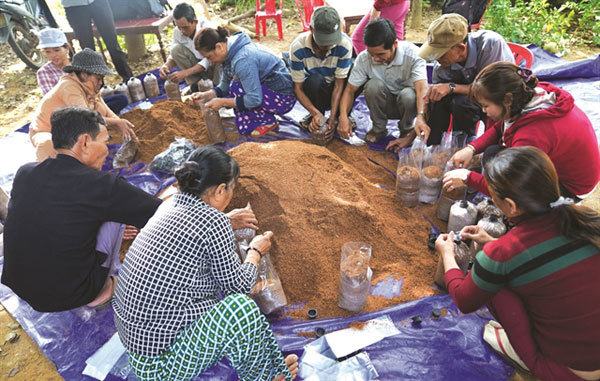 |
| Local farmers in Quang Nam Province are trained in sustainable mushroom growing at home farms. Photo courtesy of Dao Duy Linh |
“We were trained with skills for growing and caring for medicinal mushrooms at farms. The farmer-business partnership ensured the marketing and product sales – one of the risks and limited skills among farmers,” Vui said.
“Trading partners also covers re-investment funds after sale, technique transfer and processing lingzhi and edible mushrooms. Each member at the cooperative can run their own mushroom farms as an expansion of the sustainable model.”
Clau Tinh, of the Co Tu ethnic group, from A Tinh Commune of Dong Giang District, said growing the medicinal and edible mushrooms helped reduce jungle treks for illegal logging and other forestry products.
He said the local mushroom farming model allowed making a living easier, and prevented them from forest poaching.
“We were provided with saplings, skills and techniques for processing and storing mushrooms after harvest at the farm. Each fresh kilo of mushroom is bought by Linasa from VND200,000 to 300,000, and each crop can earn a net profit of VNĐ10 million,” said Tinh.
“Our ethnic group in A Tinh also grow trees and herbs in farms in the jungle under a sustainable forestry product model that reduces illegal logging from the primary forest.”
In the final report on the Green Annamites Project from 2016-20, Chairman of the Quang Nam People’s Committee Le Tri Thanh said the success of the project had helped create sustainable livelihoods for the community and protected natural resources in the province.
He said the USAID-funded project had improved incomes for more than 17,000 people and built a value chain for timber forests and medicinal herbs.
Linh said the medicinal mushroom farming was just a beginning step in the value chain for lingzhi mushrooms in Quang Nam, and they were looking to soon export.
 |
| Final product produced from medicinal mushroom at Linasa Company in Quang Nam. The production helps local farmers improve their livelihood and ease overharvesting in the jungle. Photo courtesy of Linh Nam |
Quang Nam has also been building a medicinal herb centre that will support farmers and businesses in planning and protection of local forests. The centre will also aim to produce essential oils, cosmetics and tonics from local Vietnamese ginseng, cinnamon and medicinal mushrooms.
Linh said 17 sustainable mushroom farms had now been built in the province, and his company would offer technical know-how transfer for all people expanding the farms into poverty-stricken districts in the province.
Source: Vietnam News
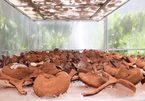
VN farmers use smartphones in cultivation of lingzhi mushrooms
In the past, two or three workers were needed to grow lingzhi mushrooms. But today, one person can undertake the work with just one smartphone.
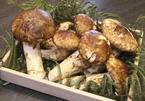
The four most expensive mushrooms sought by wealthy Vietnamese
Although the price of these species of mushrooms is up to millions of VND, they are still favored by the wealthy in Vietnam.